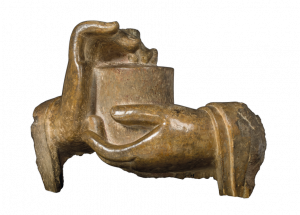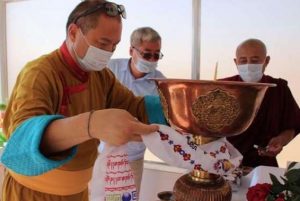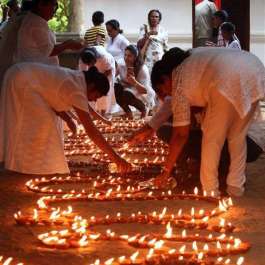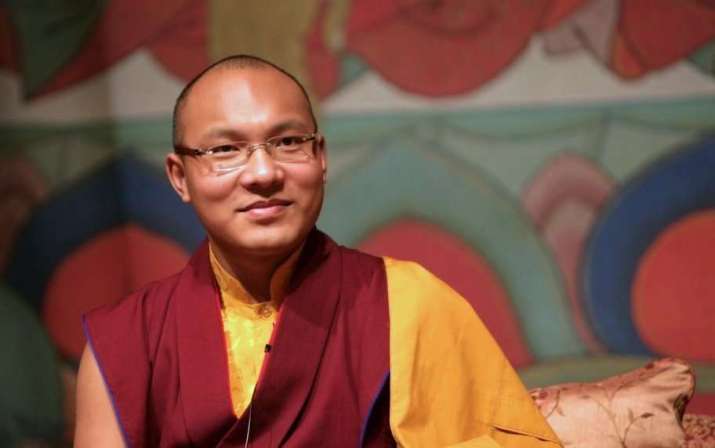
The government of India this week indicated that it is reviewing its stance on the status of His Holiness the Karmapa in India. A senior official from India’s Ministry of Home Affairs stated that the authorities are willing to ease restrictions on His Holiness’ movements in India, and dismissed suspicions previously held by the country’s intelligence community that the Karmapa was acting as an agent for China.
Ogyen Trinley Dorje was born in 1985 in Lhatok, in the traditional region of Kham in eastern Tibet, and received his initial education at Tsurphu Monastery, the traditional seat of the Karmapa lineage. On 28 December 1999, at the age of 14, he fled to India after months of careful planning, traveling by car, foot, horseback, helicopter, train, and taxi, eventually arriving on 5 January 2000 in Dharamsala, where he was received by His Holiness the Dalai Lama.
Since his arrival on Indian soil, the movements of the Karmapa, who, until recently, was based at Gyuto Monastery in the town of Sidhbari in Dharamsala, have been closely monitored by the Indian government. In 2000, a state security committee passed an order restricting the Karmapa’s freedom to travel to sensitive parts of the country without prior permission, including Rumtek Monastery in Sikkim, built by the 12th Karmapa in the mid-1700s and a focal point for sectarian tensions within the Karma Kagyu school of Tibetan Buddhism. In 2015, the government decided to review the order on travel restrictions, which were eased with the exception of Rumtek Monastery.
“India doesn’t doubt . . . [that the Karmapa] is the future face of Tibetan Buddhism,” said Amitabh Mathur, advisor on Tibetan affairs in the Ministry of Home Affairs. “We have no doubts about his commitment to the Tibetan civilization struggle, his loyalty to His Holiness the Dalai Lama, and his attachment to India. If anyone feels that the old situation [of suspicion that he is acting as an agent] may arrive again, we are trying to dispel that notion. There are no restrictions on his travel. Apart from the Dalai Lama, the Karmapa is the only [Tibetan] Buddhist leader who had met elected representatives of the government.” (The Indian Express)
Mathur was appointed as an intermediary for Tibet affairs in India three years ago. Along with Bhutan and Nepal, India is home to the largest community of the Tibetan diaspora living outside of Tibet, which has been a major source of friction in Sino-Indian relations. Mathur is scheduled to complete his tenure on 21 September.
Since the turn of the century, Buddhism has emerged as a major strategic tool in the “soft diplomacy” efforts of Asia’s emerging economic behemoths China and India. The governments of both countries have been active in promoting their respective Buddhist histories, jockeying to positions themselves as cradles of Buddhist thought and culture in order to bolster their political power with the weight and reach of Buddhism’s cultural and spiritual influence, both domestically and internationally.
It is widely believed that the 33-year-old Karmapa could eventually succeed the Dalai Lama, now 83, as the principal figurehead of Tibetan Buddhism and by extension Tibetan communities around the world. Political commentators say that New Delhi is softening its stance toward the Karmapa in the hope of benefiting from His Holiness’ influence in the global Buddhist community and improving relations with Beijing.
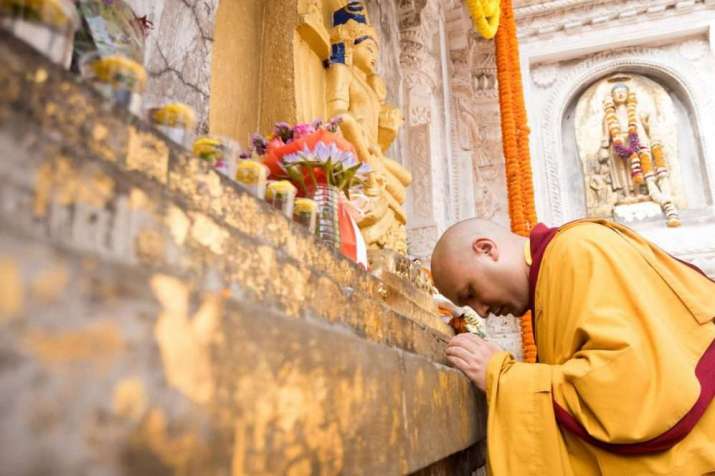
The Karmapa, a vocal advocate for vegetarianism, female monasticism, and environmental awareness and sustainability, has been residing in the United States since October last year. He originally traveled to the US to visit his ailing 80-year-old senior attendant Gelek Kunchok, who had been hospitalized in New York. Shortly afterwards, His Holiness announced that he was extending his stay after a general health check-up revealed some causes for concern.* In August, the Karmapa announced his intention to return to India later this year, saying, “I have no doubt or question that my return to India is absolutely certain,” and noting that he had been discussing his return with the Indian government.**
“When I first arrived in India, I faced many difficulties, including accusations that I was a Chinese agent, but now we have an opportunity to meet with higher-level Indian leaders to explain my situation, which has made a huge difference,” His Holiness said in an interview with Radio Free Asia. “I wanted to clarify these things [his extended stay and the rumors surrounding it] by having constructive talks with the Indian government, and we are going ahead with discussions now. If things turn out well, I am ready to return”**
Observers have suggested that the Karmapa is likely to return to India in November to attend a conference between senior leaders of Tibetan Buddhism.
The Karmapa is the head of the Karma Kagyu, the largest lineage of the Kagyu, one of the four major schools of Tibetan Buddhism—the others being Gelug, Nyingma, and Sakya. The institution of the Karmapa is the oldest tulku lineage in Tibetan Buddhism, dating back to the first Gyalwa Karmapa, Düsum Khyenpa (1110–93), predating the Dalai Lama lineage by more than two centuries. Due to a disagreement within the Karma Kagyu school over the incarnation recognition process, the identity of the 17th Karmapa remains a matter of some dispute. The majority of Tibetan Buddhists recognize Ogyen Trinley Dorje as the reincarnation of the 16th Karmapa Rangjung Rigpe Dorje, while an influential minority recognizes Trinley Thaye Dorje.
* Karmapa Extends Stay in US, Health Concerns Cited (Buddhistdoor Global)
** His Holiness the Karmapa Shares Plans to Return to India (Buddhistdoor Global)
See more
New Delhi signals change in Karmapa’s arrangement in India (Phayul.com)
As China woos Karmapa, India changes strategy (The Tribune)
No doubt on Karmapa’s commitment to Tibetan struggle: top MHA official (The Indian Express)
The Karmapa







